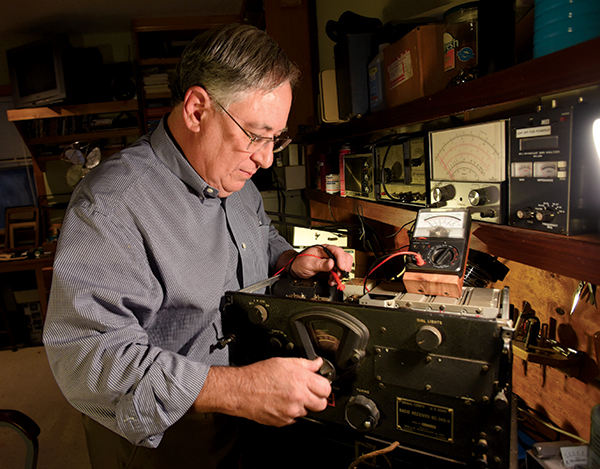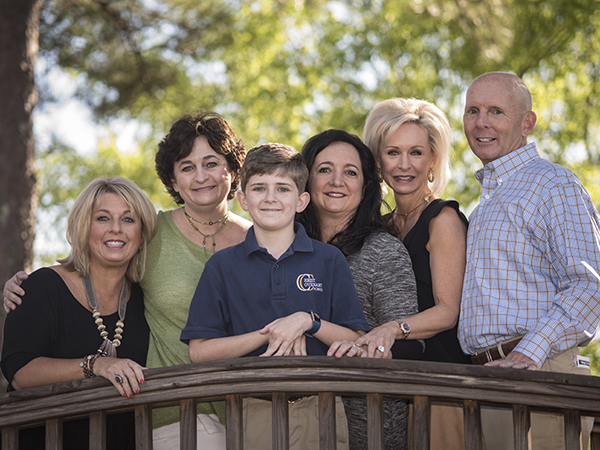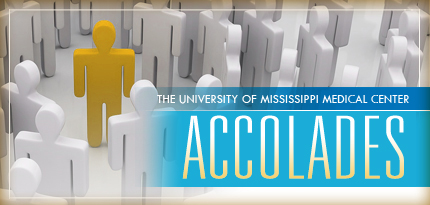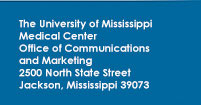|
NOTE: This article originally appeared in the Winter 2017 issue of Mississippi Medicine, the semi-annual alumni magazine for the School of Medicine. A PDF of that issue can be found here. 
Dr. Ralph Didlake is known for his talents as a physician, professor, academician and administrator. But the trained surgeon is less known, perhaps, for his skills at dissecting poetry and stitching back together World War II-era radio receivers. A profile of the New Mexico native with Mississippi roots, math whiz and - according to him - “probably the worst football player in the history of Crystal Springs.” It's unlikely that Dr. Ralph Didlake Jr. would be the person he is today in a world that never experienced the Civil War, the Nuremburg trials, the harnessing of electromagnetic waves, nuclear tests, the Space Race and the poetry of Sylvia Plath. But, then, who would be? Still, each of these monumental spectacles, movements or events has had a direct personal connection to his life or lineage, shaping the character, career, hobbies and habits of this physician, professor, academician, administrator, ethicist, poetry commentator and radio repairman. “My career looks like a bad case of attention deficit disorder,” said Didlake, trying to identify a defining moment in his life and profession. To others, it looks like a good case of intellectual versatility. It's a cliché, but it's true, said Sondra Redmont: “He's a Renaissance man.” He bridges his love for the humanities with medical education, “providing a context for our students,” said Redmont, director of operations for the Department of Preventive Medicine and Data Science. It was as a medical student that Dr. LouAnn Woodward first encountered Didlake, when he was the program director for general surgery. Now, as leader of the Medical Center, she has developed an even deeper regard for his talents. “He is thoughtful, wise and cares deeply for the education process, the education environment, and for our learners,” said Woodward, vice chancellor for health affairs and dean of the School of Medicine. “I rely on his counsel and trusted judgment every day.” Didlake exerts his counsel and judgment as professor of surgery, associate vice chancellor for academic affairs, chief academic officer and director of the Center for Bioethics and Medical Humanities - the program for which he and Redmont created a summer fellowship for undergraduates. To direct the center full-time, Didlake eventually gave up his practice, Redmont noted. “And when he was asked to be vice chancellor for academic affairs, he accepted the challenge - which speaks volumes about his dedication to the institution and who he is. “It takes a certain kind of person to be a surgeon; they save people's lives. But he's very humble. He's someone who listens. He's someone who brings people together.” He's someone who was taught to “never refuse a combat assignment,” he said, quoting a line from “The Right Stuff,” Tom Wolfe's account of America's early space program. That reference resonates with Didlake. The son of Ralph Sr., an Air Force chief master sergeant, and Lorraine “Dot” Didlake, he lived his early life on or near Kirtland Air Force Base in New Mexico, as did his sister Pamela, now a retired teacher whose married name is Brewer. Their neighbor was a nurse who worked in the Lovelace Clinic, the guinea-pig lab for about 30 of the original astronaut candidates, yielding the ground-breaking Mercury Seven. Didlake was brought up among the proving grounds for America's vision of greatness, and he reveled in this environment. “For the early space flights, there was wall-to-wall news coverage,” he said, “and we were all glued to the seven-transistor hand-held radios.” For the first 12 or so years of his life, starting in 1953, his home was in Albuquerque, a place rich in Old Spanish and Native American cultures and the arts, he said. “Living there profoundly influenced my choices,” he said. “It provided an education base I value highly. The combination of arts and culture and science was seamless.” From Albuquerque's public TV station, KNME, he soaked up the weekly adventures of the mustachioed Dr. George Fischbeck, an enthusiastic science popularizer in glasses and a bowtie. “The area was home to physicists, nuclear engineers, mathematicians,” Didlake said. Many of those scientists worked at nearby Los Alamos, the site of more than a dozen nuclear tests witnessed by his father after World War II - brilliant flashes of light, and clouds of destruction hanging over the desert like puffy stalks of broccoli or massive human skulls. “My father felt very strongly that the nuclear program was important to the defense of the country,” Didlake said, “but it was also counter to his persona. He was a very peaceful guy.” Peaceful enough to oppose his son's brief interest in a military career during the Vietnam War. At any rate, by the time the family left New Mexico, Didlake's trajectory pointed toward medicine, and to his roots in Mississippi.
|

























